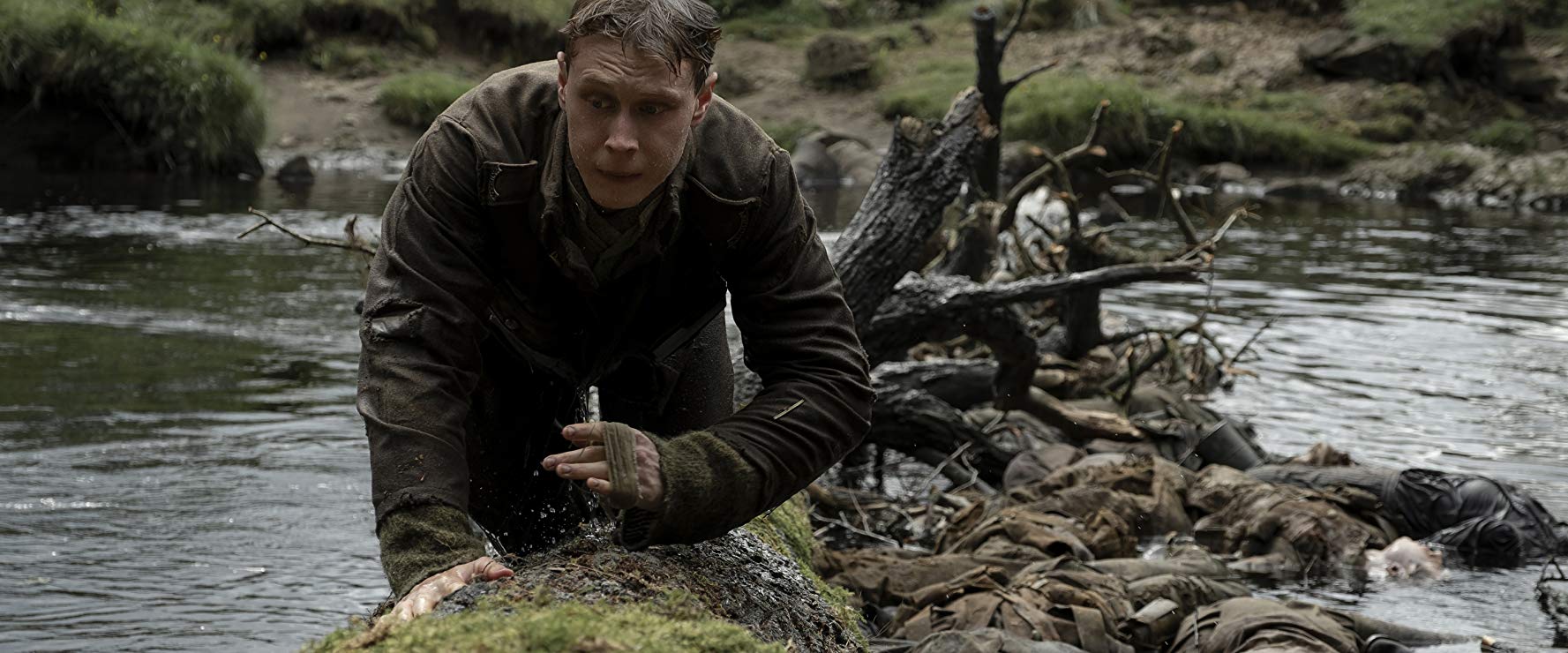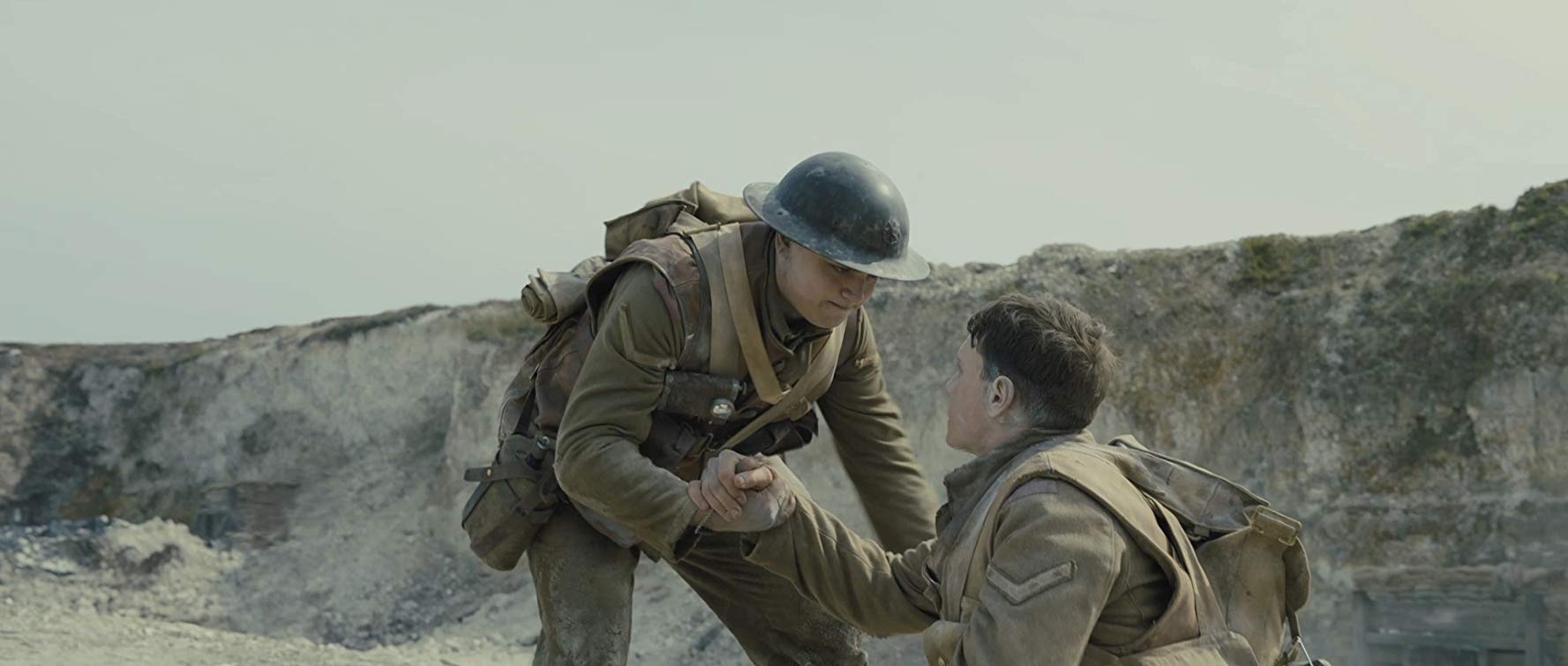I fell out of love with Christopher Nolan’s Dunkirk as quickly as I had fallen in love with it. In fact, I don’t even think ‘love’ is the right word. The more I think about it, Dunkirk is kind of like a hot summer fling you have while backpacking across Madagascar. She’s sexy, gorgeous and genuinely thrilling but it’s all momentary. An undeniable technical masterpiece that leaves you with very little to chew on after and doesn’t quite provide a deep emotional connect you (okay, I) desperately crave for when I go to the movies.
(Some context: My favourite war film of the decade is Hacksaw Ridge. There, director Mel Gibson intricately dissects its lead character and explores his psyche in a profound manner before giving us some of the most gruelling and brutal war set pieces I have ever seen and even then, it was all about making you feel. By the end of it, my tear glands had emptied the same way it had when Lee Chong Wei lost to Lin Dan at the 2012 Olympics.)
With 1917, Sam Mendes (Skyfall) has crafted a war film that’s very reminiscent of Dunkirk. It’s a sexy technical marvel worth watching on an IMAX screen with an IMAX sound system and it’s about the immediate agonizing thrills and the unforgiving, horrifying and unpredictable reality of each moment on the battlefield. But, it’s also a film that slows down to spend time with its characters, characters we come to care about. It finds delicate moments in the most indelicate of circumstances. In other words, 1917 is Dunkirk with a warm core.
The plot is simple. Two young British soldiers during World War I are tasked with an impossible mission: To journey beyond enemy lines and deliver a message that will stop 1600 men (including one of the soldier’s brother) from charging straight into a deadly trap and definite massacre. Just like Dunkirk, this is not about fighting or strategising but surviving. Just surviving. Hopefully, you survive long enough while moving quick enough to maybe, just maybe make a difference.

A lot has been said during the film’s marketing campaign about its technique. Much like Alejandro González Iñárritu did with Birdman, Mendes alongside legendary cinematographer Roger Deakins have crafted a film that’s gorgeous to behold and looks like it’s all one long shot (well, two, considering a character passes out at one point and the screen turns pitch black). Of course, the experience is not quite as enchanting for someone who’s familiar with what lies up a magician’s sleeve. You know that whenever the camera glides past, say a large dark rock, that’s where the director probably yelled “and… CUT!” into his megaphone. But even then you can’t help but be amazed. The editing by Lee Smith is so flawless that it’s all rather seamless and the cuts become invisible to the naked eye.
What’s great is that this isn’t just a gimmick. Mendes is interested in expressing a perspective here. Throughout the film, you’re either made to feel like you’re one of the two characters, Blake (Dean-Charles Chapman) and Schofield (George MacKay), or a passive observer following closely behind/beside and you’re never given a lick of information more than them. You only see what they see, you only hear what they hear, you only know what they know. This is a deliberate and calculated creative choice. There are instances where the characters get shot at and it jolts you into a state of panic and disarray as you, just like them have no idea where it’s coming from. Mendes never switches perspective.
This adds to the dread and fear. You feel like you’re journeying with them through the narrow trenches, across the slippery muddy fields, right into the dangers of No Man’s Land. Unfortunately, this time, there’s no Wonder Woman to save you. There’s a fantastic nail-biter of a scene involving a rat and a tripwire that caused the whole cinema to gasp aloud in unison.

The faux long shots make the film feel long, at times excruciatingly so. But you’re supposed to feel this way. The journey feels real-time and it’s agonizing and always shrouded with worry and dread. Even the quieter moments always threaten to end with misery. Here, Mendes’ technique ties back to the core theme of 1917: Survival. When the film finally comes to a close, you don’t necessarily feel happy, but feel a huge wave of relief wash over you.
There’s a sad irony to the frames. Deakins is incapable of shooting anything that doesn’t look like it belongs on the walls of the Louvre. So here too, you get nice shots of lush green fields with sprinkles of white flowers, you get portraits of burning buildings against a scorching scarlet sky. But when we look closer, we see piles of dead bodies, we see dirt, we see panic plastered across the faces of soldiers who have finally, truly realised the reality of what they signed up for, we see a captain crying as his subordinates charge towards impending doom like the second son of Denethor II in Return of the King. At one point, Schofield falls down and in an attempt to break the fall, his hands are driven right through a hole in a decaying body.

What 1917 does better than Dunkirk is that the narrative is driven by emotions, the visuals are underlined by a constantly thumping heart. You care about Blake’s journey not just because the success of his mission will save 1600 men, but because one of those men is his brother. Schoefield frankly doesn’t want to be there, but he chooses to trudge along anyway because he’ll never let his friend walk into the line of fire alone. Dean-Charles Chapman and George MacKay deliver earnest and restrained performances.
1917 is fuelled with adrenaline and filled with devastating thrills, but it’s the softer moments that my mind keeps drifting towards in the days since I’ve watched it. I love the gentle and poignant scene with the French woman and her baby. You hear the sounds of bullets and grenades happening at a close distance, you feel the heat of the surroundings. We’re on the verge of giving up. Perhaps Schofield is too. But puncturing the ugliness of war is the sound of a baby’s innocent cry. And just like that, you get the sense that Schoefield remembers why the war is worth fighting and the world is worth saving.
Mendes isn’t eager to get to the next big sequence of suspense. He lingers in these softer moments long enough before slapping us back into harsh reality. He takes the time to show us a character just walking and walking and walking towards the sound of music, towards the voice of a man singing deep in the woods, mentally and physically drained, on the verge of absolute defeat, before just slumping to the ground in resignation. He lets us sit with the character for long enough before we’re pulled right back up and launched right back into danger.
Survive. Survive. Survive.
1917 is currently playing in Malaysian cinemas.
Follow us on Instagram, Facebook, Twitter or Telegram for more updates and breaking news.



